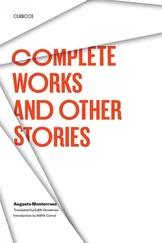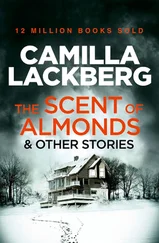Philip Dick - Complete Stories 3 - Second Variety and Other Stories
Здесь есть возможность читать онлайн «Philip Dick - Complete Stories 3 - Second Variety and Other Stories» весь текст электронной книги совершенно бесплатно (целиком полную версию без сокращений). В некоторых случаях можно слушать аудио, скачать через торрент в формате fb2 и присутствует краткое содержание. Жанр: Фантастика и фэнтези, на английском языке. Описание произведения, (предисловие) а так же отзывы посетителей доступны на портале библиотеки ЛибКат.
- Название:Complete Stories 3 - Second Variety and Other Stories
- Автор:
- Жанр:
- Год:неизвестен
- ISBN:нет данных
- Рейтинг книги:3 / 5. Голосов: 1
-
Избранное:Добавить в избранное
- Отзывы:
-
Ваша оценка:
- 60
- 1
- 2
- 3
- 4
- 5
Complete Stories 3 - Second Variety and Other Stories: краткое содержание, описание и аннотация
Предлагаем к чтению аннотацию, описание, краткое содержание или предисловие (зависит от того, что написал сам автор книги «Complete Stories 3 - Second Variety and Other Stories»). Если вы не нашли необходимую информацию о книге — напишите в комментариях, мы постараемся отыскать её.
Complete Stories 3 - Second Variety and Other Stories — читать онлайн бесплатно полную книгу (весь текст) целиком
Ниже представлен текст книги, разбитый по страницам. Система сохранения места последней прочитанной страницы, позволяет с удобством читать онлайн бесплатно книгу «Complete Stories 3 - Second Variety and Other Stories», без необходимости каждый раз заново искать на чём Вы остановились. Поставьте закладку, и сможете в любой момент перейти на страницу, на которой закончили чтение.
Интервал:
Закладка:
"Change of plan," Norris said. "We're going to wait until this man's companions get here. Their camp is breaking up. Another day won't make any difference."
"All right, sir." The worker pushed off, climbing back down to the surface, a weird figure in his heavy lead-lined suit and bulging helmet and intricate gear.
"We're visitors," Norris told him.
Trent flinched violently. "What?"
"Visitors on a strange planet. Look at us. Shielded suits and helmets, spacesuits -- for exploring. We're a rocket-ship stopping at an alien world on which we can't survive. Stopping for a brief period to load up -- and then take off again."
"Closed helmets," Trent said, in a strange voice.
"Closed helmets. Lead shields. Counters and special food and water. Look over there."
A small group of runners were standing together, gazing up in awe at the great gleaming ship. Off to the right, visible among the trees, was a runner village. Checker-board crops and animal pens and board houses.
"The natives," Norris said. "The inhabitants of the planet. They can breathe the air, drink the water, eat the plant-life. We can't. This is their planet -- not ours. They can live here, build up a society."
"I hope we can come back."
"Back?"
"To visit -- some time."
Norris smiled ruefully. "I hope so too. But we'll have to get permission from the inhabitants -permission to land." His eyes were bright with amusement -- and, abruptly, pain. A sudden agony that gleamed out over everything else. "We'll have to ask them if it's all right. And they may say no. They may not want us."
Small Town
Verne Haskel crept miserably up the front steps of his house, his overcoat dragging behind him. He was tired. Tired and discouraged. And his feet ached.
"My God," Madge exclaimed, as he closed the door and peeled off his coat and hat. "You home already?"
Haskel dumped his briefcase and began untying his shoes. His body sagged. His face was drawn and gray.
"Say something!"
"Dinner ready?"
"No, dinner isn't ready. What's wrong this time? Another fight with Larson?"
Haskel stumped into the kitchen and filled a glass with warm water and soda. "Let's move," he said.
"Move?"
"Away from Woodland. To San Francisco. Anywhere." Haskel drank his soda, his middle-aged flabby body supported by the gleaming sink. "I feel lousy. Maybe I ought to see Doc Barnes again. I wish this was Friday and tomorrow was Saturday."
"What do you want for dinner?"
"Nothing. I don't know." Haskel shook his head wearily. "Anything." He sank down at the kitchen table. "All I want is rest. Open a can of stew. Pork and beans. Anything."
"I suggest we go out to Don's Steakhouse. On Monday they have good sirloins."
"No. I've seen enough human faces today."
"I suppose you're too tired to drive me over to Helen Grant's."
"The car's in the garage. Busted again."
"If you took better care of it --"
"What the hell do you want me to do? Carry it around in a cellophane bag?"
"Don't shout at me, Verne Haskel!" Madge flushed with anger. "Maybe you want to fix your own dinner."
Haskel got wearily to his feet. He shuffled toward the cellar door. "I'll see you."
"Where are you going?"
"Downstairs in the basement."
"Oh, Lord!" Madge cried wildly. "Those trains! Those toys! How can a grown man, a middle-aged man --"
Haskel said nothing. He was already half way down the stairs, feeling around for the basement light.
The basement was cool and moist. Haskel took his engineer's cap from the hook and fitted it on his head. Excitement and a faint surge of renewed energy filled his tired body. He approached the great plywood table with eager steps.
Trains ran everywhere. Along the floor, under the coal bin, among the steam pipes of the furnace. The tracks converged at the table, rising up on carefully graded ramps. The table itself was littered with transformers and signals and switches and heaps of equipment and wiring. And -- And the town.
The detailed, painfully accurate model of Woodland. Every tree and house, every store and building and street and fireplug. A minute town, each facet in perfect order. Constructed with elaborate care throughout the years. As long as he could remember. Since he was a kid, building and glueing and working after school.
building and street and fireplug. A minute town, each facet in perfect order. Constructed with elaborate care throughout the years. As long as he could remember. Since he was a kid, building and glueing and working after school.
His trains. And his town. Haskel bent over the miniature houses and streets, his heart glowing with pride. He had built it -- himself. Every inch. Every perfect inch. The whole town. He touched the corner of Fred's Grocery Store. Not a detail lacking. Even the windows. The displays of food. The signs. The counters.
The Uptown Hotel. He ran his hand over its flat roof. The sofas and chairs in the lobby. He could see them through the window.
Green's Drugstore. Bunion pad displays. Magazines. Frazier's Auto Parts. Mexico City Dining. Sharpstein's Apparel. Bob's Liquor Store. Ace Billiard Parlor.
The whole town. He ran his hands over it. He had built it; the town was his.
The train came rushing back, out from under the workbench. Its wheels passed over an automatic switch and a drawbridge lowered itself obediently. The train swept over and beyond, dragging its cars behind it.
Haskel turned up the power. The train gained speed. Its whistle sounded. It turned a sharp curve and grated across a cross-track. More speed. Haskel's hands jerked convulsively at the transformer. The train leaped and shot ahead. It swayed and bucked as it shot around a curve. The transformer was turned up to maximum. The train was a clattering blur of speed, rushing along the track, across bridges and switches, behind the big pipes of the floor furnace.
It disappeared into the coal bin. A moment later it swept out the other side, rocking wildly.
Haskel slowed the train down. He was breathing hard, his chest rising painfully. He sat down on the stool by the workbench and lit a cigarette with shaking fingers.
The train, the model town, gave him a strange feeling. It was hard to explain. He had always loved trains, model engines and signals and buildings. Since he was a little kid, maybe six or seven. His father had given him his first train. An engine and a few pieces of track. An old wind-up train. When he was nine he got his first real electric train. And two switches.
He added to it, year after year. Track, engines, switches, cars, signals. More powerful transformers. And the beginnings of the town.
He had built the town up carefully. Piece by piece. First, when he was in junior high, a model of the Southern Pacific Depot. Then the taxi stand next door. The cafe where the drivers ate. Broad Street.
And so on. More and more. Houses, buildings, stores. A whole town, growing under his hands, as the years went by. Every afternoon he came home from school and worked. Glued and cut and painted and sawed.
Now it was virtually complete. Almost done. He was forty-three years old and the town was almost done.
Haskel moved around the big plywood table, his hands extended reverently. He touched a miniature store here and there. The flower shop. The theater. The Telephone Company. Larson's Pump and Valve Works.
That, too. Where he worked. His place of business. A perfect miniature of the plant, down to the last detail.
Haskel scowled. Jim Larson. For twenty years he had worked there, slaved day after day. For what? To see others advanced over him. Younger men. Favorites of the boss. Yes-men with bright ties and pressed pants and wide, stupid grins.
Misery and hatred welled up in Haskel. All his life Woodland had got the better of him. He had never been happy. The town had always been against him. Miss Murphy in high school. The frats in college. Clerks in the snooty department stores. His neighbors. Cops and mailmen and bus drivers and delivery boys. Even his wife. Even Madge.
Читать дальшеИнтервал:
Закладка:
Похожие книги на «Complete Stories 3 - Second Variety and Other Stories»
Представляем Вашему вниманию похожие книги на «Complete Stories 3 - Second Variety and Other Stories» списком для выбора. Мы отобрали схожую по названию и смыслу литературу в надежде предоставить читателям больше вариантов отыскать новые, интересные, ещё непрочитанные произведения.
Обсуждение, отзывы о книге «Complete Stories 3 - Second Variety and Other Stories» и просто собственные мнения читателей. Оставьте ваши комментарии, напишите, что Вы думаете о произведении, его смысле или главных героях. Укажите что конкретно понравилось, а что нет, и почему Вы так считаете.












